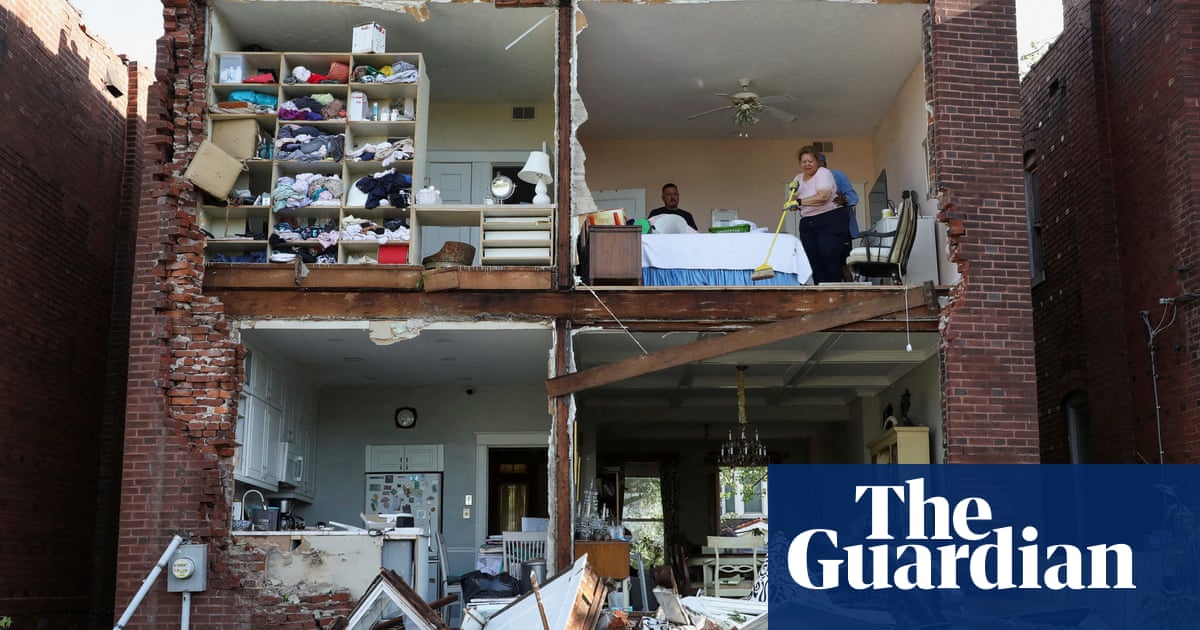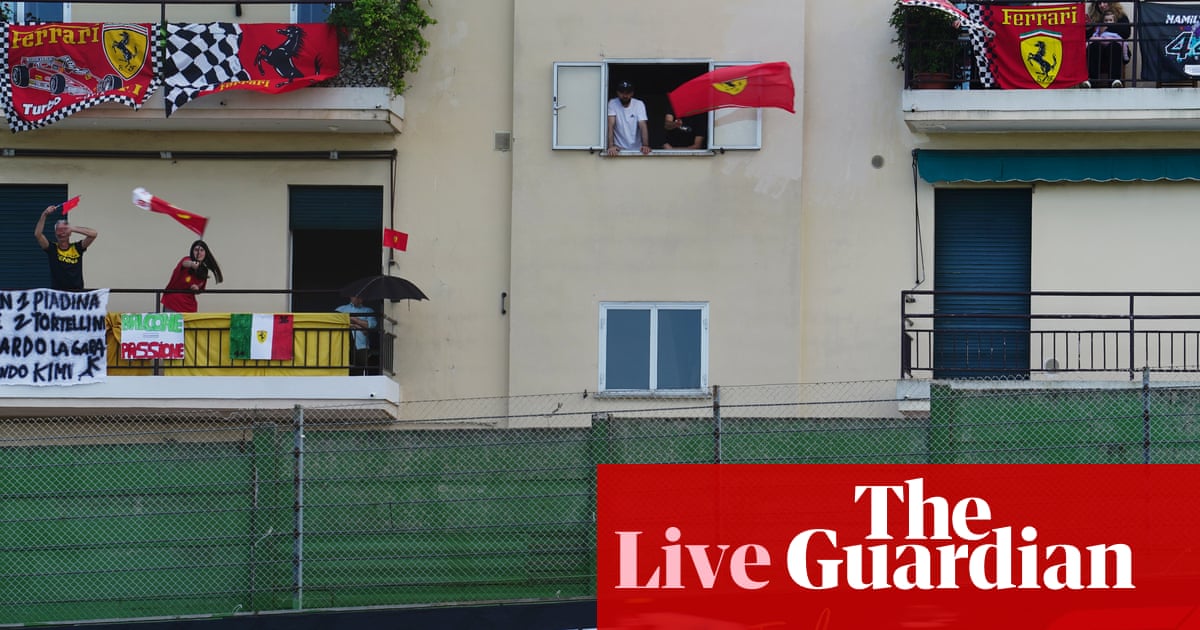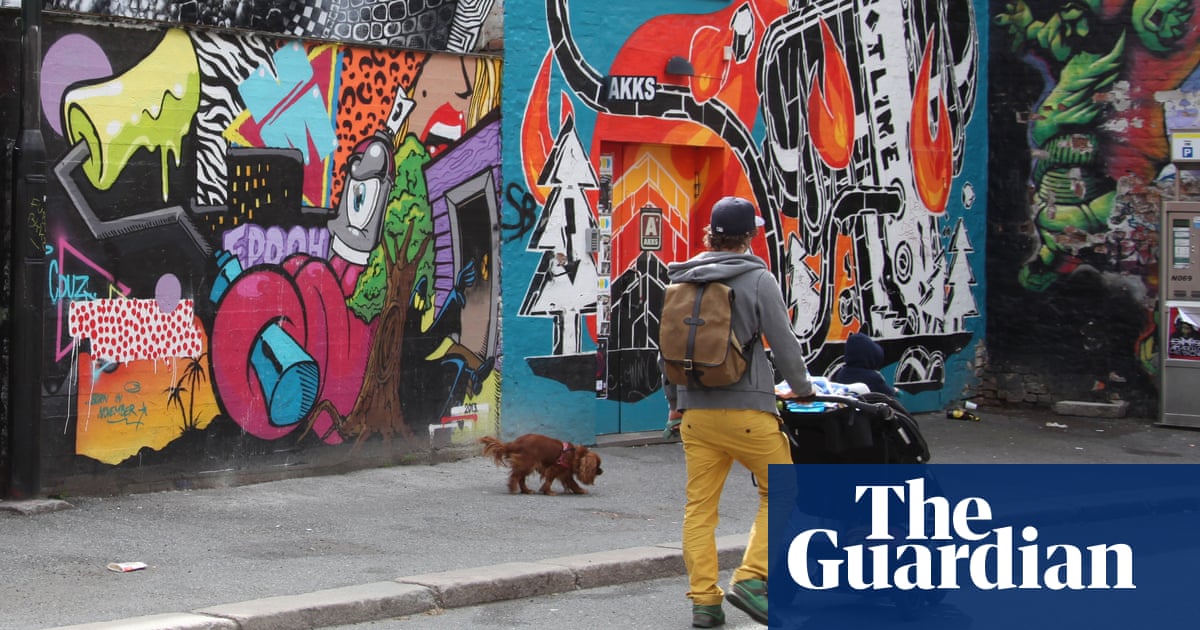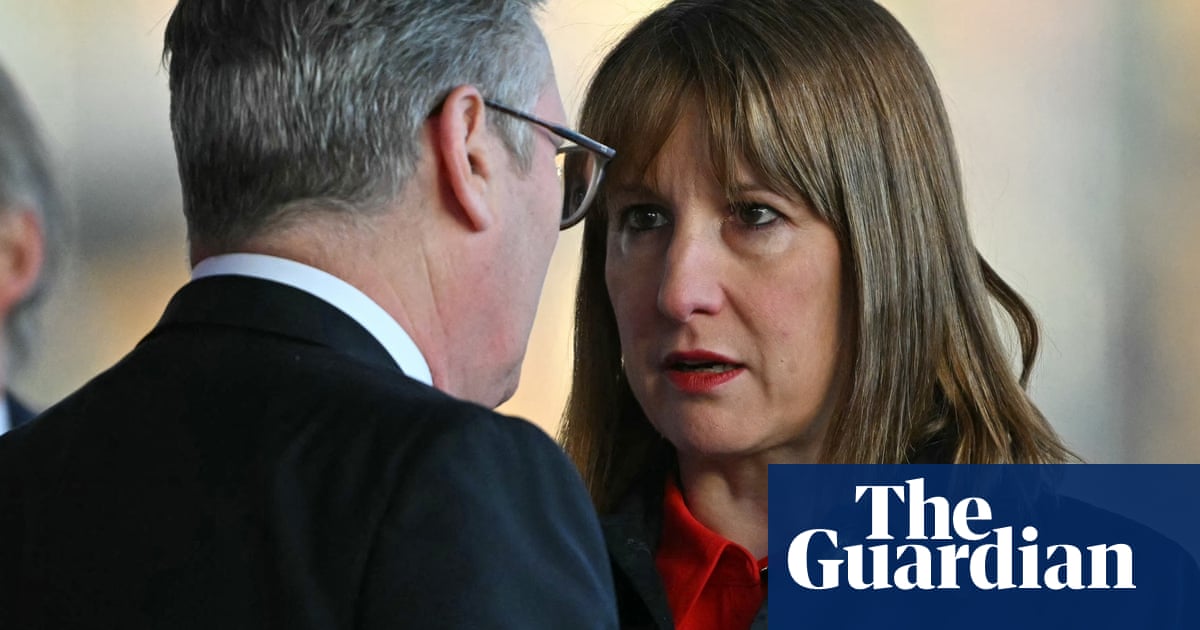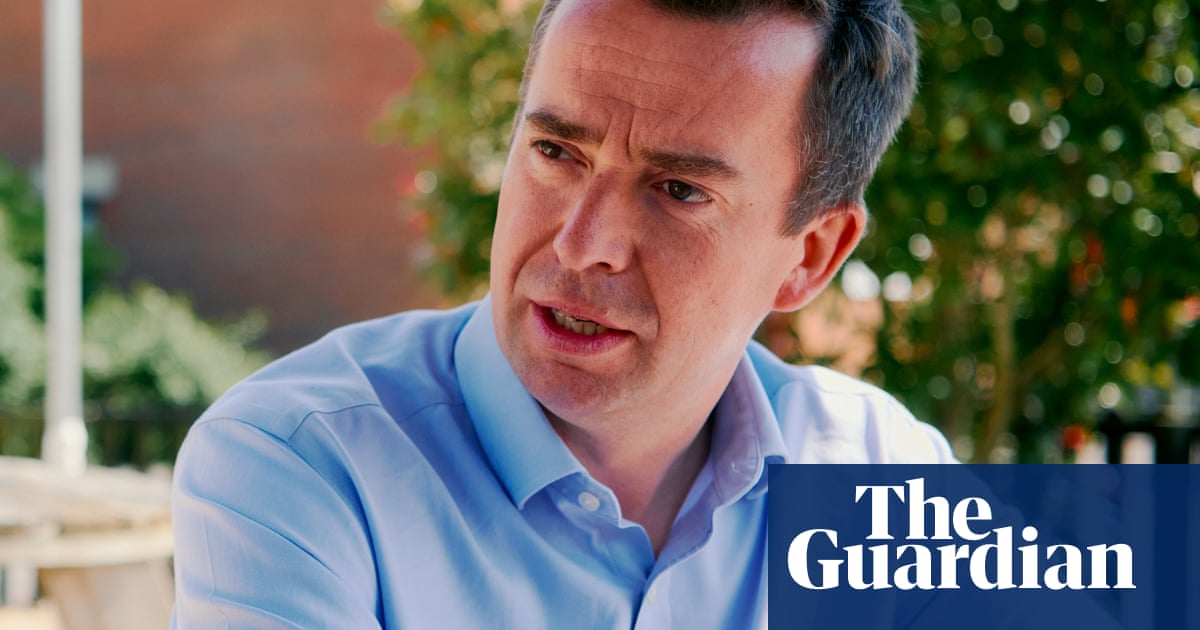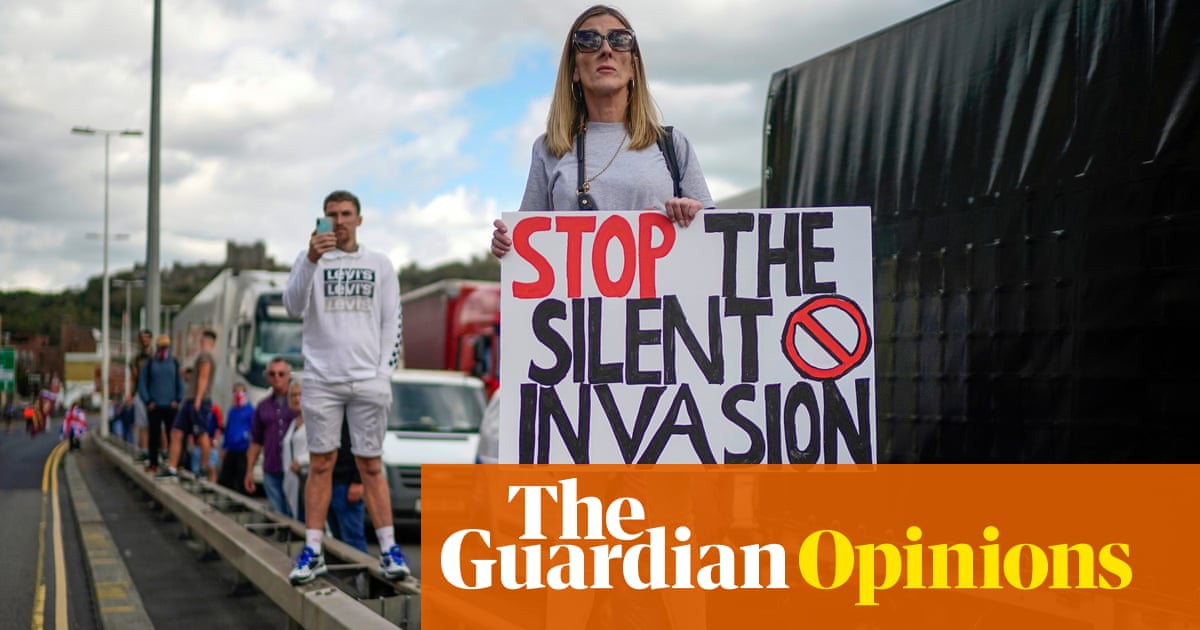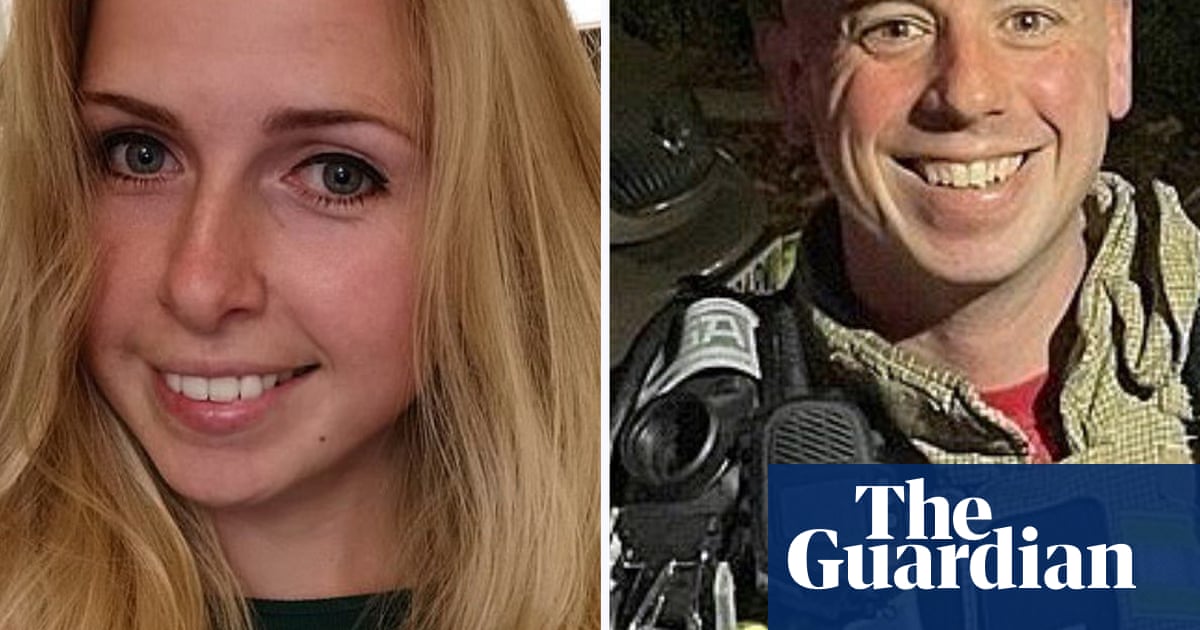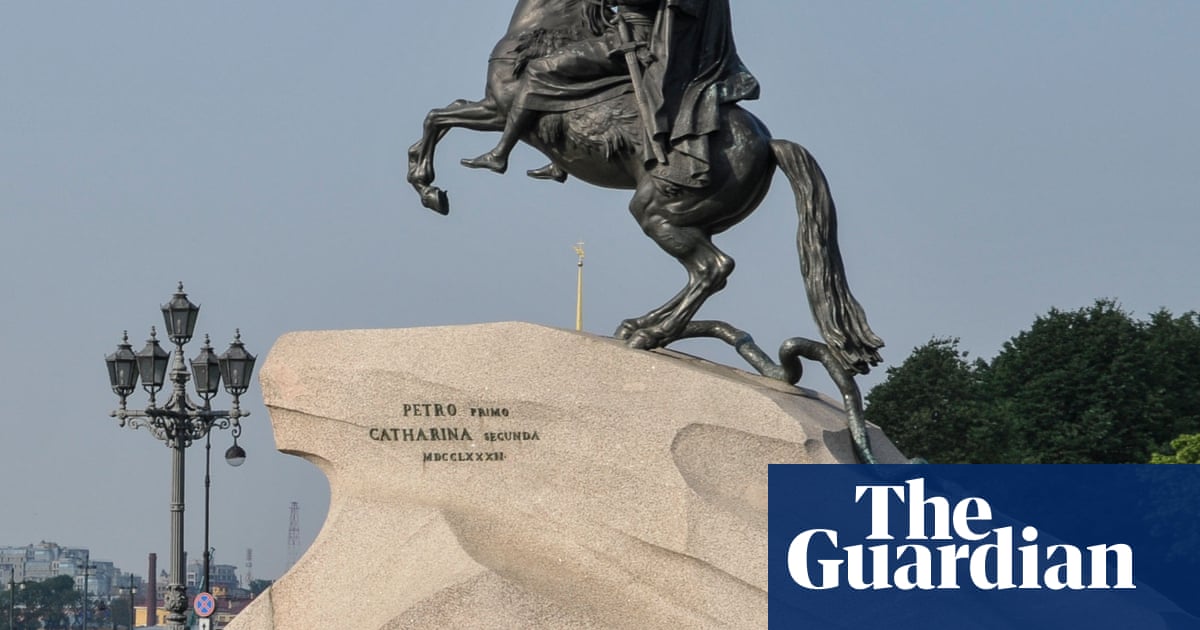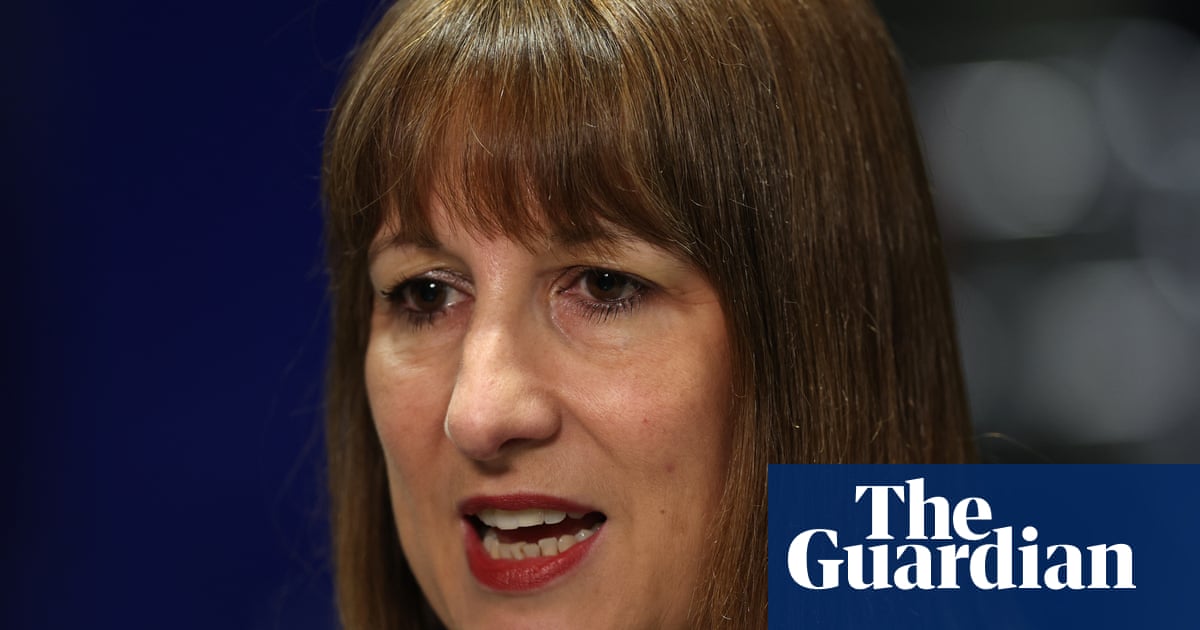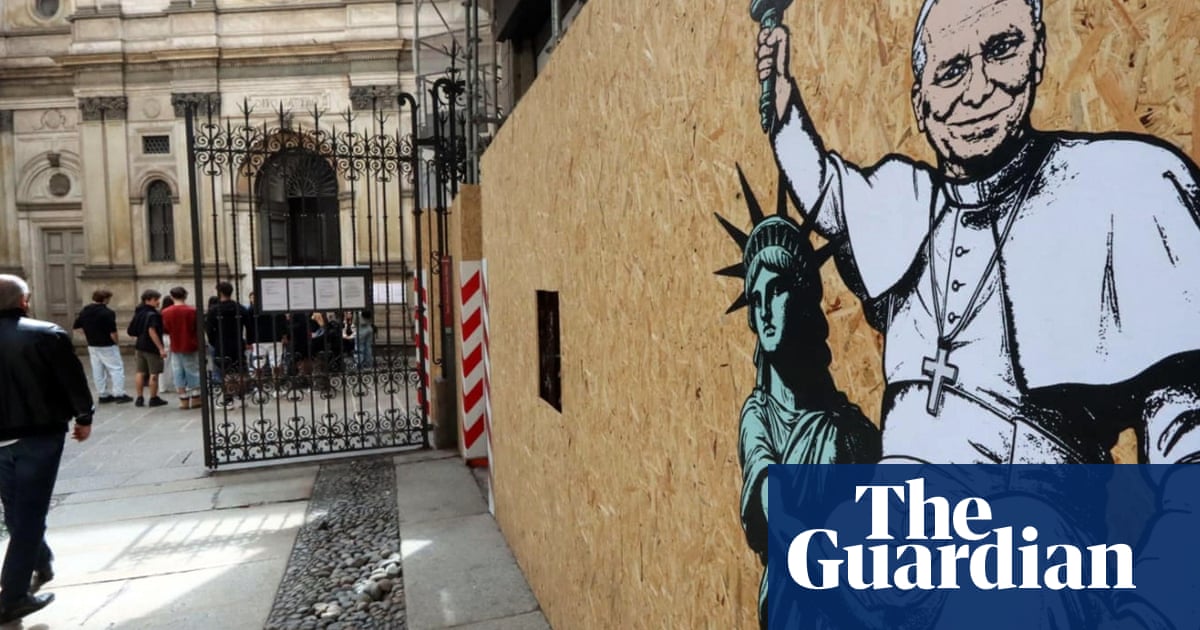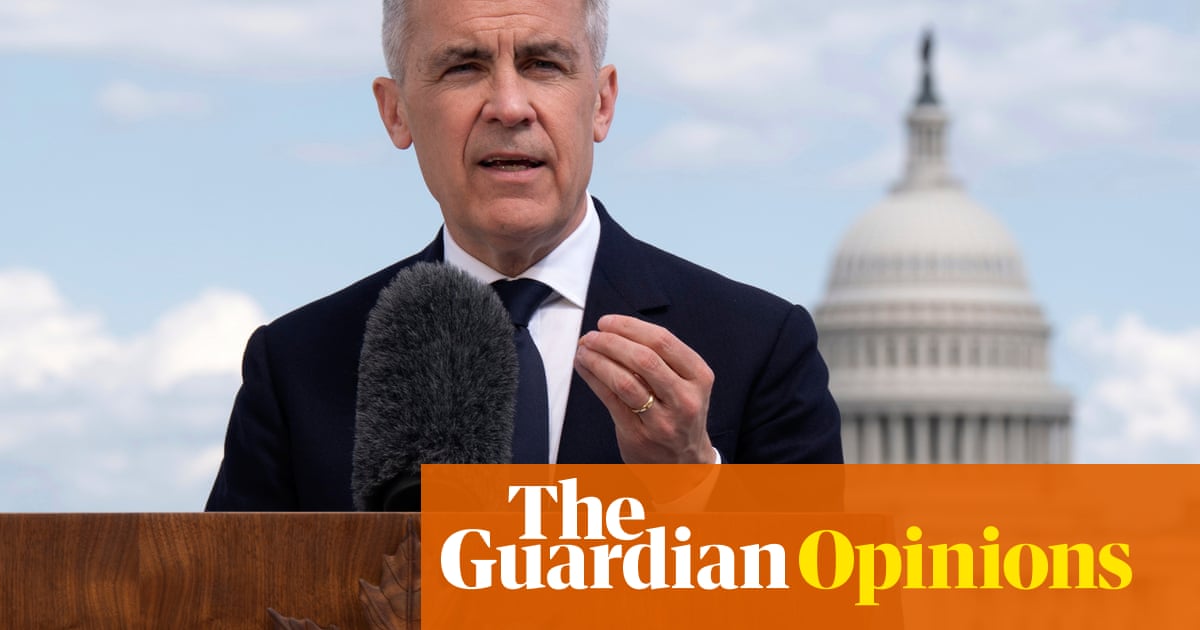Israeli strikes killed at least 58 Palestinians overnight, say local health authorities
Israel’s air force killed at least 58 Palestinians in new attacks on Gaza overnight, local health authorities said on Saturday, reports Reuters.
More than 300 Palestinians in Gaza have been killed in Israeli strikes since Thursday, according to local health authorities, one of the deadliest phases of bombardment since a truce collapsed in March. The latest strikes came after US president Donald Trump ended his Middle East tour on Friday with no apparent progress towards a new ceasefire.
“Since midnight, we have received 58 martyrs, while a large number of victims remain under the rubble. The situation inside the hospital is catastrophic,” said the director of the Indonesian hospital in northern Gaza, Marwan al-Sultan.
Key events Show key events only Please turn on JavaScript to use this feature
Iran’s supreme leader Ayatollah Ali Khamenei said on Saturday that Israel is “a dangerous, deadly cancerous tumor in the region” that must be uprooted, reports Reuters.
“Undoubtedly, in this region, the source of corruption, war, and conflict is the Zionist regime – a dangerous, deadly cancerous tumor in the region – and it must be uprooted and it will be uprooted,” he said, according to state media.
Arab summit host Iraq pledges $40mn for Gaza and Lebanon reconstruction
Iraq prime minister Mohammed Shia al-Sudani, whose country is hosting an Arab League summit, said on Saturday it would provide $40m for the reconstruction of Lebanon and Gaza after wars with Israel, reports Agence France-Presse (AFP).
Iraq backs the creation of an “Arab fund to support reconstruction efforts” after crises in the region, al-Sudani told Arab leaders in Baghdad. Iraq will contribute “$20m to the reconstruction of Gaza and $20m for the reconstruction of Lebanon,” he added.
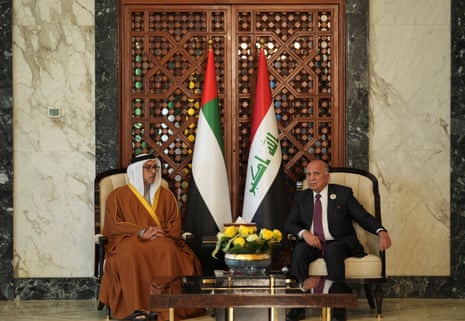
UK officials suspect Macron will delay French Palestine recognition

Patrick Wintour
British officials are dubious that Emmanuel Macron intends to press ahead with French recognition of a Palestinian state next month – the first by a G7 nation – which could also push back the UK government following suit.
The French president indicated last month that Paris might recognise Palestine, joining 148 other countries, but said he wanted to do so at a UN conference in New York in June as part of a wider process.
The UN conference on the two-state solution is scheduled for 2-4 June, co-chaired by France and Saudi Arabia.
Israel has already warned Macron that recognition would be seen as rewarding Hamas, and France has been trying to forestall the criticism by strengthening a reformed Palestinian Authority to govern Gaza.
The UK foreign secretary, David Lammy, has confirmed to parliament he has been in discussions with the French about recognition, but also said he would not simply support a gesture with no practical impact. But the growing British view is that France – a country that has debated recognition for more than a decade – will decide the conditions are not ripe.
The UK has for years said it will recognise a Palestinian state, but only at the point of maximum impact, without defining that moment any further.
But British officials admit anger at the Israeli blockade of aid into Gaza, and backbench Labour MPs’ frustration with their party’s response in government is putting pressure on the Foreign Office to back an initiative.
An Iraqi political official, speaking to the Associated Press (AP) on condition of anonymity because he was not authorised to comment, said that Iran’s al-Quds force commander Esmail Ghaani had paid a visit to Baghdad prior to the Arab League summit and “conveyed messages of support for the Iranian-American negotiations” for a nuclear deal and a demand for the lifting of crippling sanctions on Iran.
Arab countries gather in Baghdad to discuss regional crises
The Arab League is meeting in Baghdad on Saturday to discuss Gaza and other regional crises, but some leaders are expected to miss the talks that come straight after US president Donald Trump’s Gulf tour.
Trump caused uproar earlier this year by declaring that the US would take over Gaza and turn it into the “Riviera of the Middle East”, prompting Arab leaders to come up with a plan to rebuild the territory at a March summit in Cairo.
Palestinian president Mahmud Abbas was the first Arab leader to arrive in Baghdad Friday, while Egyptian president Abdel Fattah al-Sisi and Qatari emir Sheikh Tamim bin Hamad Al Thani arrived on Saturday morning, reports Agence France-Presse (AFP). But a diplomatic source told the news agency that most Gulf states would be represented by ministers.
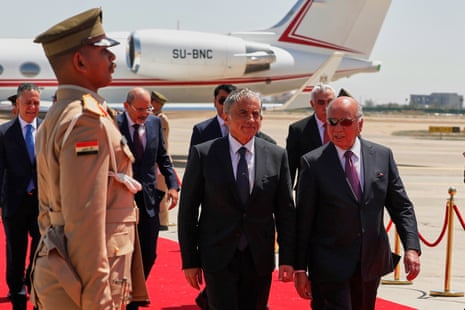
The war in Gaza is expected to dominate the agenda, especially after Israel approved plans to expand its offensive and spoke of the “conquest” of the territory. The Israeli military said it had launched “extensive strikes” on Saturday as part of the “initial stages” of a fresh offensive in Gaza.
United Nations secretary general António Guterres will attend the summit, and Spanish prime minister Pedro Sánchez – who has sharply criticised the Israeli offensive – is expected to address it as a guest, according to AFP.
Iraqi foreign minister Fuad Hussein said the Baghdad meeting would endorse decisions that were made at the March summit in Cairo to support Gaza’s reconstruction as an alternative to Trump’s widely condemned proposal.
The US president reiterated the proposal on his Gulf tour this week, saying in Qatar on Thursday that he wanted the US to “take” Gaza and turn it into a “freedom zone”.
Israeli strikes killed at least 58 Palestinians overnight, say local health authorities
Israel’s air force killed at least 58 Palestinians in new attacks on Gaza overnight, local health authorities said on Saturday, reports Reuters.
More than 300 Palestinians in Gaza have been killed in Israeli strikes since Thursday, according to local health authorities, one of the deadliest phases of bombardment since a truce collapsed in March. The latest strikes came after US president Donald Trump ended his Middle East tour on Friday with no apparent progress towards a new ceasefire.
“Since midnight, we have received 58 martyrs, while a large number of victims remain under the rubble. The situation inside the hospital is catastrophic,” said the director of the Indonesian hospital in northern Gaza, Marwan al-Sultan.
“Thousands of truckloads of essential supplies” for Gaza are waiting in Jordan and Egypt due to Israel’s military blockade, the UN agency for Palestinian refugees (Unrwa) said on Friday.
In a post on X, the UN agency said:
Thousands of truckloads of essential supplies are stored in Jordan and Egypt, blocked from entering #Gaza due to the ongoing siege.
Unrwa teams remain ready to scale up the delivery of critical supplies and services.
Humanitarian assistance must reach everyone in need – no exceptions.
Gaza rescuers say Israeli strikes killed 10 on Saturday as Indonesian hospital struggles with supply shortages
Gaza rescuers said Israeli strikes killed 10 people on Saturday, after the Israeli military announced the early stages of an intensified operation aimed at defeating Hamas.
The stepped-up campaign came as the humanitarian situation in the besieged territory continued to worsen, with one of its last functioning hospitals warning it was no longer able to treat seriously injured patients due to shortages of supplies and a nearby attack that damaged the premises.
Gaza’s civil defence agency spokesperson Mahmud Bassal told Agence France-Presse (AFP) 10 bodies had been brought to Gaza hospitals after strikes on Saturday morning.
Three people were killed and four injured in drone strikes east of the southern city of Khan Younis, he said, while three others were killed and several injured in the bombing of a house in Jabalia, in the north.
An attack on an apartment north-west of Khan Younis killed three people, he added, while one person was killed and five injured, “including a girl, a young woman and a pregnant woman”, in a strike on a tent west of the same city.
The reports of deaths came after the Israeli army announced it had “launched extensive strikes and transferred forces to seize control of areas within the Gaza Strip”.
The moves were part of the “the expansion of the battle in the Gaza Strip, with the goal of achieving all the war’s objectives, including the release of the abducted and the defeat of Hamas”, the military said.
Marwan al-Sultan, director of the Indonesian hospital in the northern Gaza Strip, said the situation there was “tragic and catastrophic after its surroundings were targeted again this morning, causing the collapse of ceilings and cracks in the walls”.
“The operating rooms and intensive care units are completely full and we are unable to receive any more critical cases,” he told AFP.
He added there was “a severe shortage of blood units, medicines, medical and therapeutic supplies, and surgical procedures”.
Sultan said doctors had been forced to source blood for transfusions from other patients and even from themselves “due to the impossibility of donations from citizens due to malnutrition”.
UN human rights chief calls escalation of attacks in Gaza 'tantamount to ethnic cleansing'
The UN high commissioner for human rights has called the escalation of Israeli attacks in Gaza and the aid blockade as “tantamount to ethnic cleansing” and has pleaded for global action.
In a statement on Friday, Volker Türk said:
This latest barrage of bombs … and the denial of humanitarian assistance underline that there appears to be a push for a permanent demographic shift in Gaza that is in defiance of international law and is tantamount to ethnic cleansing.
Türk said this week’s intensification raises fears of the start of an even wider Israeli offensive and urged all parties, including other countries with direct influence, to stop the assault. “We must stop the clock on this madness,” he said.
On 13 May, the Israeli military struck two of the largest hospitals in Khan Younis in southern Gaza, Nasser Medical Complex and the European hospital, leaving the latest out of service, according to the Gaza ministry of health.
In his statement, Türk said:
Hospitals are protected at all times – and are even more indispensable during war.
The killing of patients or of people visiting their wounded or sick loved ones, or of emergency workers or other civilians just seeking shelter, is as tragic as it is abhorrent. These attacks must cease.
Even if, as Israel says, it was targeting Hamas command centres underground, and even if destroying these structures offered a definite military advantage at the time of the attack, it is bound by international law to ensure that constant care is taken to spare the lives of civilians, and that’s clearly not the case.
“The laws of war, built on the Geneva conventions, are sacrosanct, as are the rules requiring all states, without exceptions to protect human rights, including the convention on the prevention and punishment of the crime of genocide,” Türk said. “All actors are bound to strictly respect these rules. Those who do not must be held to account.”
Iran’s president Masoud Pezeshkian said on Saturday that US president Donald Trump speaks simultaneously about peace and threat.
According to Reuters, Pezeshkian said:
Which should we believe?
On the one hand, he speaks of peace and on the other, he threatens with the most advanced tools of mass killing.
He said Tehran will continue Iran-US nuclear talks but is not afraid of threats. “We are not seeking war,” he said.
Israel-backed aid group admits it won’t be able to reach most vulnerable in Gaza

Emma Graham-Harrison
The organisation backed by Israel to take over food distribution in Gaza as famine looms has admitted it would not be able to feed some of the most vulnerable civilians from the militarised compounds it plans to set up.
Aid groups and the United Nations have already refused to work with the Gaza Humanitarian Foundation (GHF), a Swiss-registered organisation led by a former US marine. They say it does not have the capacity to end hunger in Gaza and would make it harder to get aid to civilians caught up in other wars by undermining their neutrality.
Israel has not officially laid out its plans for food distribution in Gaza, but statements from the GHF and briefings from Israeli officials envisage four or five militarised distribution centres in southern Gaza, run by private security companies, under the oversight of Israeli military bases.
GHF is in “advanced discussions” with Israel on details and timing and hopes to have news soon, a person involved with planning at the foundation said.
Heads of household would be expected to collect boxes weighing up to 20kg with several days’ supply of food and basic hygiene items like soap for their families. There is no provision for those too sick or weakened by famine to walk long distances across Gaza’s ruined landscape with heavy loads.
“From what we have understood, the plan would increase the ongoing suffering of children and families in the Gaza Strip,” said United Nations Children’s Fund spokesperson Jonathan Crickx.
“How is a mother of four children, who has lost her husband, going to carry 20kg back to her makeshift tent, sometimes several kilometres away?” Crickx said. “The most vulnerable people, including the elderly, people with disabilities, the sick and wounded, and orphans, will face huge challenges to access aid.”
Read Emma’s full story here:

Jason Burke
Gaza’s civil defence agency said strikes on Friday killed 108 people, mostly women and children, and some officials in the Palestinian territory put the number killed by Israeli attacks in recent days as high as 250 or 300.
At least 48 bodies were taken to the Indonesian hospital in northern Gaza, and 16 to Nasser hospital after strikes on the outskirts of the central town of Deir al-Balah and the southern city of Khan Younis, health officials said.
In Jabaliya, a neighbourhood in the north of Gaza that has seen heavy bombardment for weeks, women sat weeping beside 10 bodies draped in white sheets that were lined up on the ground amid rubble.
Umm Mohammed al-Tatari, 57, said she had been awoken by a pre-dawn attack on northern Gaza.
“We were asleep when suddenly everything exploded around us … everyone started running … there was blood everywhere, body parts and corpses,” she said.
Israel’s military said its air force had struck more than 150 “terror” targets across Gaza.
Hamas still holds 57 of about 250 hostages seized in its October 2023 attack on Israel, which resulted in the deaths of about 1,200 people, mostly civilians.
Israel confirms new offensive in Gaza as it bids to 'achieve all goals of the war'

Jason Burke
Israel has announced a major new offensive in Gaza after launching a wave of airstrikes on the territory that killed more than 100 people, in what it said was a fresh effort to force Hamas to release hostages.
In a statement late on Friday, the Israel Defense Forces (IDF) said they had “launched extensive attacks and mobilized forces to seize strategic areas in the Gaza Strip, as part of the opening moves of Operation Gideon’s Chariots and the expansion of the campaign in Gaza, to achieve all the goals of the war in Gaza”.
Israel has called up tens of thousands of reservists for the new offensive, in which troops will hold on to seized territory and which will lead to a significant displacement of the population, Benjamin Netanyahu has said. Israeli ministers have spoken of “conquering” Gaza.
The announcement came as Donald Trump finished a visit to the region that included stops in Saudi Arabia, Qatar and the United Arab Emirates but not Israel.
Earlier on Friday, Donald Trump acknowledged that people are starving in Gaza and claimed the US would have the situation in the territory “taken care of”.
The US president told reporters in Abu Dhabi: “We’re looking at Gaza. And we’re going to get that taken care of. A lot of people are starving.”
You can read Jason’s full report here:

.png) 4 hours ago
2
4 hours ago
2
